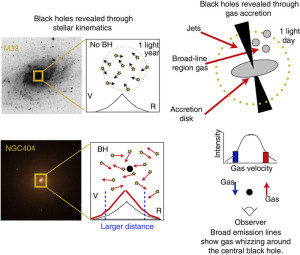Foucault, Michel. “The Archaeology of Knowledge and the Discourse on Language.” New York: Vintage Books, 1972. Print.
Part I & II: Clearly, Foucault is challenging to read (an understatement), yet as I progress into his text, thanks to the overarching theme of our course, I am able to see his concepts through one of the operational questions of our class: what is a network and how does it impact our thinking? Thankfully, Foucault himself uses network language to articulate his reasoning. His approach is highly rhetorical, beginning by setting us within a large context — history — as a framework for this discussion, then moving into more defined examples of discourse communities within that history. Yet the “take away” possibilities are not limited to these examples of community discourse; as I was reading the early passages, I found myself recalling a recent class (English Debates) in which discussions focused on the subject of disciplinary in the field of English Studies. In particular, I thought of how many practitioners operate in isolation, without regard to how other disciplines can offer the field of English new systems, or networks, of interpretation or operation.
Clearly, Foucault’s theories are wide reaching in terms of potential for application. So much so, that I found myself making a comparison to the way black holes function and his description on page 29 of how looking at absences or gaps (disruptions and displacements, the difference) actually help define what we see.
So, some key points from these early chapters, condensed from the pages of notes I have taken thus far:
- This work is concerned with exploring unities of discourse as a means of examining them.
- He rejects a universalist approach to analyzing discourses, in part because such an approach ignores the “exceptions.”
- He emphasizes the need to reject our preexisting “habits of synthesis” (25) in order to see our way more clearly.
- Instead, he is interested in examining these discourses through relationships, connections – NETWORKS – to allow a more productive exploration, including the areas of disruptions.
- P. 44: “a discursive formation is defined if one can establish such a group; if one can show how any particular object of this course finds in it it’s place and lot of emergence.”
- Relationships “are not present in the object. … they do not define its internal constitution.” (43) “Discursive relations are not… internal to discourse” (46)
- Page 48: “I would like to show that discourses… are not… a mere intersection of things and words: an obscure web of things,… colored chain of words” (48). This appears to be another move against a structuralist tradition that is often bound up in linguistics, a move I see woven into other passages.
- Page 49: “in analyzing discourses themselves,” we should look for “the emergence of a group of rules proper to discursive practice” in order to see them as “practices that systematically form the objects of which they speak” (49). His use of the term “rules” troubles me somewhat, and I wonder — as I progress through the reading — if that will continue. He does take great pains to preconceptualize the use of this term by distinguishing his use of the term from a more structuralist approach.
- In chapter 4 he talks about the laws of operations: (1) directs us to look at author or speaker; (2) also look at the site or location of the delivery (51); as well as look at the situation in terms of relationships to other groups (52). This is so rhetorical.
- He refers to his theory about such “laws” as a “network of sites” (55), and as “a succession of conceptual systems” (56).
And so, at this point, Foucault has my attention. His description of rhetorical habits of systematizing discursive interchanges as “object vs. relationships” is intriguing, to say the very least. His treatment of text and even “the book” early in these chapters reminded me of work by Wysocki and Johnson-Eilola on the culture of the book, which refers to our use of book-based literacy as a metaphor for much of what we do in our field of Composition (and English) Studies. Thus far, Foucault’s use of a network theory, when juxtaposed to our first set of readings on the Rhetorical Situation, is creating a definitive lens through which I anticipate re-seeing some of my early training in rhetoric.


3 Responses to ENGL 894: Readings & Planning